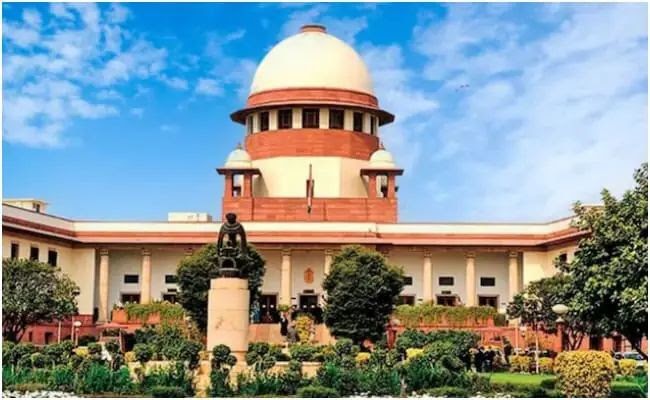Can a time limit be set for the President and Governors to take decisions on bills? The Supreme Court commented that if any bill is passed again by the State Assembly and then sent to the Governor, he cannot send it to the President for reconsideration.
The court made this comment while questioning the Center on the powers of the Governor in relation to approving the bills.
So will the elected governments not depend on the arbitrariness of the Governors- SC
Chief Justice BR Gavai told SG Tushar Mehta – You are citing the debates of the Constituent Assembly, but see whether their expectations were fulfilled or not. He had envisioned two centers of power. A Chief Minister and a Governor. Have we lived up to that vision? This talks about the need for harmony between the Governor and the State. Now we have to consider how some honorable governors have exercised their discretion, which has led to so many lawsuits. If bills can be stalled without sending them back to the Assembly, will not elected governments be dependent on the arbitrariness of governors? This question was asked by the Supreme Court today during the hearing of the President’s reference on questions related to giving approval to the bills.
According to the Constitution, the Governor has 4 options
A bench of Chief Justice of India BR Gavai, Justice Surya Kant, Justice Vikram Nath, Justice PS Narasimha and Justice AS Chandurkar was hearing the arguments of the Solicitor General of India. During this, Solicitor General Tushar Mehta said that according to Article 200 of the Constitution, the Governor has four options – grant assent, withhold assent, reserve the bill for the consideration of the President, or return the bill to the Assembly. The Solicitor General argued that if the Governor says he is withholding assent, it means “the Bill has lapsed.”
‘So will they keep the bill on hold forever?’
According to the Solicitor General, if assent is withheld then the Governor is not required to return the Bill to the Assembly for reconsideration. CJI Gavai then asked that if such a power is recognised, would it not give the Governor the right to put the Bill on hold indefinitely? According to you, withholding means that the bill does not get passed, but then if he does not choose to send it back for reconsideration then he will keep it withholding forever. SG said that the Constitution itself has given this discretion to the Governor. CJI said- So are we not giving full authority to the Governor to hear the appeals? The government elected by majority will depend on the will of the Governor.
Governor is not a postman – Tushar Mehta
Solicitor General Tushar Mehta said that the post of Governor will become that of a postman without discretionary powers. The Governor is not a postman. He represents the Government of India. They are appointed by the President, who is elected by the nation through indirect elections. The Solicitor General said that if the Governor cannot use his discretion to stop the bills, then his post will be reduced to that of a postman only. Justice PS Narasimha said that judicial review becomes important here. It also becomes prejudicial to the powers of the Governor and the legislative process. At first he may refuse, but at the same time he may also ask to modify this part. Justice Surya Kant said that if you are stopping then the reasons come. If you have given reasons for this, then today you are stopping it by calling it unconstitutional, but later it can be improved by making changes in it.
